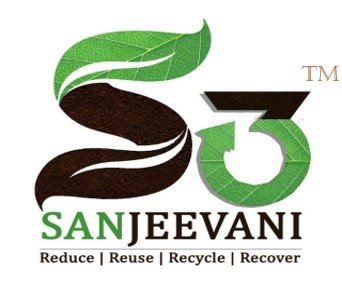#Happy Independence day!!
Independence from passive littering!!
Zulkif Shaikh
Co-founder, Sanjeevani S3
Littering, or throwing waste anywhere you see fit is a very Mumbai problem. Every day we see drains and gutters choked with plastic, paper and even biodegradable waste. On our daily commute we see fruit, vegetable and animal waste strewn around everywhere and since we’re so used to it, go about our day without giving it a second thought. This littering causes health problems, air and water pollution and in the monsoons, is one of the reasons for our chronic flooding problem. This litter eventually washes out into the sea, ruins Mumbai’s beautiful beaches, damages the marine ecosystem, reduces fish populations and affects the entire fishing economy which supports millions of people. 18% of this littered trash enters the storm water drains, choking them and resulting in waterlogging.
Have you ever given a thought to why we litter?
Is it carelessness, a lack of awareness, or just sheer ignorance? All of these are problems that can be overcome. Luckily, over the past few years thanks to ceaseless efforts of the local body, NGOs and civil society, Mumbaikars are slowly coming to grips with this menace and have started to change their behaviour. Change might be slow but it is coming. Unfortunately, one aspect of littering no one really focuses on is passive littering. Apparently 9 in 10 of us do it every day, depend on it in our daily lives and don’t even notice it.
What is passive littering?
When an individual hands over their waste to another entity/organisation, which instead of processing it responsibly, dumps it at another location, knowingly or unknowingly, it is termed passive littering. Passive littering is far more insidious and dangerous than active littering and causes irreparable damage to our immediate environment. Improper disposal causes noxious gases which our children inhale every day, toxic substances leach into the water that we drink and poisons the soil. This leads to respiratory, digestive and other diseases, destroys Mumbai’s natural ecosystem and reduces our quality of life. We have three major dumping grounds: Kanjurmarg, Mulund and Deonar. Arguably all of them are 100+ hectares, with a minimum height of a 7 storey building. These have been created due to our passivity. Mumbai breaths because it is blessed by the Arabian Sea on one side, the verdant Western Ghats on the other while the Sanjay Gandhi National Park functions as the green lung, cleaning our air. Even this cannot last forever, and we can clearly see strain on our natural cleaning processes with daily increasing degradation of our water, soil and air.
How can we help?
There are many solutions available in the market for individual households and even entire communities. Mumbaikars are smart people who can understand and apply technologies while setting an example for the rest of India. We cannot solely rely on the government to fix our problems. Mumbai consist of more than 44 thousand registered societies that can take a lead in conjunction with their local BMC officials. For starters, a lot of this waste is biodegradable under the right conditions and can be converted to compost and even biogas. Composting is a technology that is easy to install, run; which provides us with a source of quality fertilizer that is extremely cheap. Eventually at a larger scale we can also decompose this waste to produce bio-cooking gas and even electricity. What is needed is a will to try these green technologies and instead of giving up, continuing to adapt, provide feedback and improve their applicability. We need to rise above the narrow concerns of up-front cost and societal stigma to keep trying until we succeed while at the same time encouraging our friends and neighbours to do the same.
On India’s 72nd Independence Day, let’s attempt to obtain freedom from this scourge of littering! Let’s help our loved ones to do the same.
Jai Hind!
